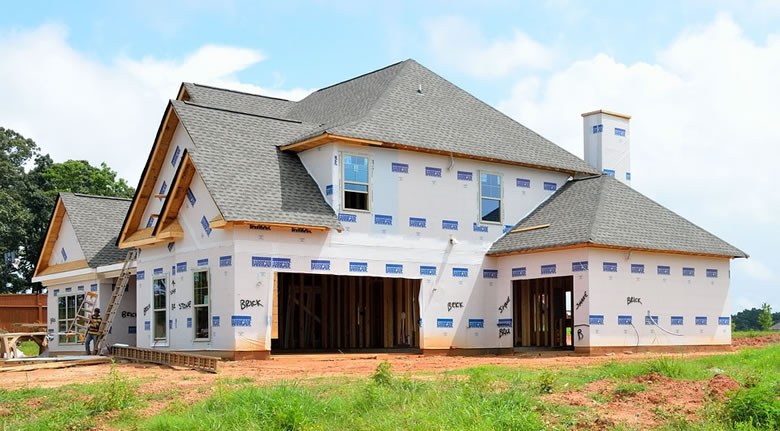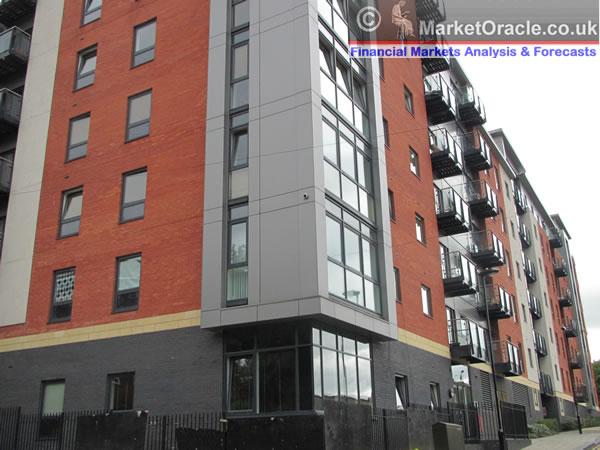8 Tips for Choosing Your First Investment Property
Housing-Market / Buy to Let Apr 26, 2019 - 04:15 PM GMTBy: Steve_Barker
 If you’re looking for your first investment property, you’ve no doubt familiarized yourself with trends in mortgage and interest rates and have decided that now is the time. The process may seem daunting, at first, but you’ll find it’s more manageable than you might think.
If you’re looking for your first investment property, you’ve no doubt familiarized yourself with trends in mortgage and interest rates and have decided that now is the time. The process may seem daunting, at first, but you’ll find it’s more manageable than you might think.
In choosing your investment property, you’re choosing to invest in your dreams. With this in mind, here are a few tips to help you out.
Tip 1): Do Your Research
You’re smart, and that’s why you’re going to do your research before you buy. Macroeconomic research can help you to get a sense of the larger trends and forces shaping the economy and the likely renting decisions of your prospective tenants.
You’ll also want to use your research to ensure that any property you are looking at is in the kind of place that will be appealing to your target clients. Of course, you’ll also want to make sure that it will be profitable.

Tip 2): Don’t Get Too Fancy
For your first investment property, you’re probably better off choosing something in the lower to middle price range. Even if you have the money, don’t go for a higher-end property as your first investment.
The reason for this is that keeping things simple for your first property also limits your liability in case things go poorly. With any luck, you’ll do well and then you’ll have what it takes to invest in a more impressive property. Some helpful tips for the first time homebuyers help you to go through the buying process.

Tip 3): Spend Time There
If you’re going to buy something, it’s a good idea to know what it’s really all about. You can figure this out for yourself if you spend time at the property, particularly if you do a couple of stake-outs from 6:00 am to 9:00 pm and from 9:00 pm to midnight prior to committing.
If you’ve spent time at the property during those hours, you’ll have a sense for the kinds of things that do or do not happen there. This will help you ascertain if you really want to buy it, or if you’d rather go somewhere else.
Tip 4): Look at the Numbers
Buy on a good margin, not a gut feeling. Don’t buy on a flip deal, in particular, without a sufficient margin for error. You may be tempted by a feeling that this, that, or the other place is perfect, but if it turns out to be much more expensive than you thought, you’ll be in a bind.
Think about your margin in terms of the things you know, other things that you may not know, and if you can, a buffer beyond that.
Tip 5): Look at the Location
Real estate is all about location. If your asset pays for tax, insurance, and maintenance and provides cash flow, you can expect that over time there will be enough appreciation to afford you good returns.
If you’ve done your homework and chosen well, your property will almost certainly become more valuable over time. This may afford you the chance to refinance on more favorable terms, the chance to raise rents, and higher sale prices if you ever do decide to sell.

Tip 6): Single-Family Homes Are Good First Investments
Investing in single-family homes is the easiest, simplest way to get started in real estate investment. These properties have easier upkeep, as a rule, than similarly-situated multifamily or commercial properties.
You’ll also have the advantage of only one tenant, meaning there will usually be less wear and tear. Plus, whenever something breaks, you’ll only need to fix the one thing.
Tip 7): Invest in Turnkey Properties
If you invest in a property where there is already a tenant and a property manager, you have the great advantage of not having to fill these vacancies. Finding and screening a tenant is often an investor’s least favorite task, and finding a good property manager is nothing to be taken lightly either.
You can save yourself a great deal of headache and bother by simply buying a property where there is already a perfectly good tenant and a perfectly respectable property manager to keep things in good order.
Tip 8): You Need A Good Lease
Finally, whether you’re buying a turnkey property or filling a vacancy, you’ll want to have a good clear lease in place.
A lease should spell out everything expected of the tenant: when payments are due, guest policy, subletting policy, whether pets are allowed, etc. Need the tenant to keep the yard neat and trim? Make sure you include that.
Spelling things out clearly lays the groundwork for a good and mutually beneficial arrangement with your first tenant at your first property.

By Steve Barker
© 2019 Copyright Steve Barker - All Rights Reserved
Disclaimer: The above is a matter of opinion provided for general information purposes only and is not intended as investment advice. Information and analysis above are derived from sources and utilising methods believed to be reliable, but we cannot accept responsibility for any losses you may incur as a result of this analysis. Individuals should consult with their personal financial advisors.
© 2005-2022 http://www.MarketOracle.co.uk - The Market Oracle is a FREE Daily Financial Markets Analysis & Forecasting online publication.


